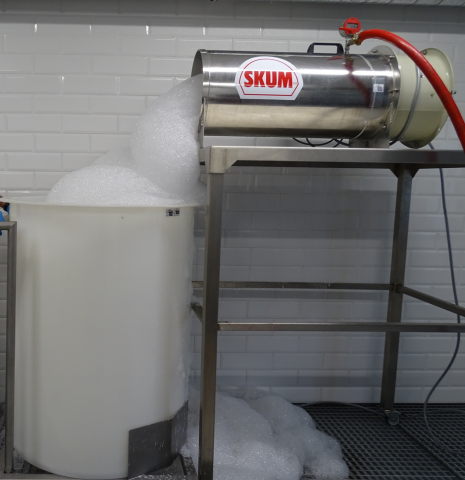
ANPI, accredited to EN ISO/IEC 17025 by BELAC, expands its laboratory dedicated to the analysis of extinguishing agents
For more than 10 years, ANPI has had its own chemistry laboratory for the analysis of extinguishing agents such as foam.
Thanks to the remarkable work of our inspectors in the field, ANPI quickly realised that certain malfunctions (poor quality, degradation, inadequacy, etc.) related to fire extinguishers were present during visits. These malfunctions can lead to major fires, as the foaming agent is the extinguishing agent.
Following the expansion of our laboratory (independent, impartial and competent), ANPI is perfectly able to meet the demands of installers, customers and prospects (European and international).
Our laboratory is accredited to EN ISO/IEC 17025 by BELAC for NBN EN 1568-1/2/3/4 (see our accreditation area 003-TEST).
Thanks to our high-tech equipment, ANPI can carry out two types of tests to verify the quality of emulsifiers:
1. Physico-chemical analyses:
During this type of analysis, we analyse several parameters, namely:
- The density of the emulsifier;
- The pH of the emulsifier;
- Sedimentation of the emulsifier;
- Viscosity of the emulsifier - Newtonian ;
- Viscosity of the emulsifier - Pseudo-plastic (rheometer);
- Surface tension of the emulsifier;
- The interfacial tension and spreading coefficient of the emulsifier;
- The film on cyclohexane;
- Freezing point of the emulsifier.
2. Performance analysis:
For this type of analysis, ANPI has acquired a brand new laboratory that provides greater ergonomics for our many test technicians. It also allows us to contain and process all waste related to emulsifier testing. The inauguration took place in October 2022.
This new laboratory allows us to analyse the following parameters:
- The low, medium and high expansion of the foam;
- The settling time at 25% and 50% of the emulsifier;
- The aqueous film on polar solvents.
Why should emulsifiers be analysed?
The main purpose of these analyses is to be able to detect potential flaws that can lead to major industrial risks. It is therefore essential to choose quality manufacturers and to respect optimal storage conditions (humidity, temperature, etc.). The most frequently observed degradations are dilution, evaporation, acidification and sedimentation.
If you would like to receive further information about our trials, please contact us: laboratories@anpi.be
Would you like to receive a quotation: sales@anpi.be






